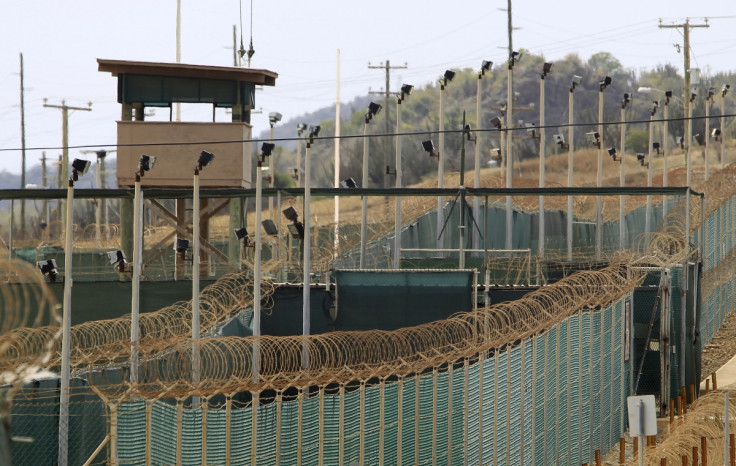Former Guantanamo Detainee Feroz Abbasi 'Attended Al-Qaida Training Camp'

A man freed from Guantanamo Bay and paid more than £1 million in compensation has been accused of attending al-Qaida training camps by a terrorist "supergrass".
Feroz Abbasi, a computer engineer from south London, was one of 16 UK citizens held in the notorious prison. They received a total of £20 million from the British government to settle claims of complicity in their rendition and detention.
US forces seized the 34-year-old in Afghanistan and held him in a series of secret prisons before releasing him from Guantanamo in 2005.
It has emerged that an al-Qaida supergrass told intelligence officials that Abbasi had been paid to travel to Afghanistan by extremist cleric Abu Hamza to train as a terrorist.
The claims have emerged in documents relating to Hamza's trial in New York, where he is charged with inciting and aiding terrorism.
Robin Simcox, an al-Qaida expert at the Henry Jackson Society, said that the revelation raised questions about why the compensation was paid to Abbasi when officials knew of his alleged links to terrorism.
"The Government agreed a settlement with the Guantanamo detainees because it believed it was better than a lengthy litigation process in which secret intelligence would be exposed and national security could be seriously damaged," Simcox said.
"However, there was never an admittance of liability that the security services had done anything wrong. In Feroz Abbasi's case, the facts have always pointed towards his involvement with dangerous, extremist causes, which makes his payout all the more troubling."
Abbasi was born in Uganda, but moved to the UK as a child. In 2000, he began attending London's Finsbury Park mosque, then a favourite haunt of Muslim radicals. He was arrested in Kunduz, Afghanistan, by Northern Alliance forces in 2001, and handed over to US forces.
A handwritten confession he allegedly wrote could not be used as evidence in UK courts as Abbasi was allegedly tortured while in detention.
After his release, he and other former Guantanamo detainees sued the UK government for complicity in their illegal detainment and arrest.
In 2010, a secret compensation deal was reached, with both sides signing confidentiality agreements.
Saajid Badat, who plotted a shoe-bombing attack, turned supergrass in exchange for a shorter jail term, said that Abbasi had contact with senior al-Qaida figures.
According to court documents, he claimed to have met Abbasi in 2001 in Kandahar.
He says he looked after Abbasi in Afghanistan and acted as a translator between him and "two of al-Qaida's most senior leaders" who, he claims, asked Abbasi if he would be willing to attack "American and Jewish targets".
The US Justice Department says that Badat first made the claims in 2004, and they were corroborated by another, unnamed, witness.
At Hamza's trial, Badat said that he saw Abbasi at an al-Qaida training camp in 2001, but admitted under cross examination that he had only seen him digging holes with a spade.
Hamza denies charges of trying to set up a terrorist training camp in the US, of supporting al-Qaida in Afghanistan and providing assistance to militants who kidnapped 16 western tourists in Yemen in 1998.
Since regaining his freedom, Abbasi has married and attended a London university.
© Copyright IBTimes 2025. All rights reserved.




















